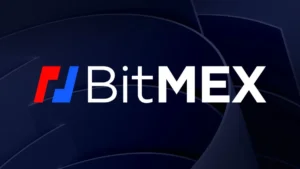Coinbase CEO Brian Armstrong Advocates for FIT21 to Clarify Crypto Regulation

QUICK TAKE
- Coinbase CEO Brian Armstrong describes FIT21 as a “historic vote” that could provide clear crypto regulation.
- Armstrong emphasizes the need for rules to protect consumer rights and prevent regulatory ambiguity.
- The FIT21 bill aims to establish comprehensive legal frameworks for digital assets.
Coinbase CEO Brian Armstrong has expressed strong support for the Financial Innovation and Technology for the 21st Century Act (FIT21), a legislative proposal he believes will bring much-needed clarity to cryptocurrency regulation in the United States. Armstrong’s endorsement of the bill came via a post on the social media platform X, where he characterized the impending House of Representatives vote on FIT21 as a “historic vote.” If passed, Armstrong asserts, this legislation will “finally start to create some clear rules to regulate crypto.”
For years, Coinbase has been at the forefront of advocating for clearer regulations surrounding digital assets. Armstrong’s comments underscore the importance of having a well-defined legal framework to govern the cryptocurrency market, which has often been marred by regulatory uncertainty and inconsistent enforcement actions.
“Americans want to know their representatives are protecting their rights to use crypto, creating clear rules to protect consumers, and won’t let the lack of clarity be weaponized by a few activists in the administration trying to unlawfully kill an industry,” Armstrong said. His remarks reflect a broader sentiment within the crypto community that regulatory clarity is crucial not only for consumer protection but also for the sustainable growth of the industry.
The Role of FIT21 in Crypto Regulation
FIT21 aims to provide a comprehensive legal framework for digital assets, addressing the regulatory ambiguities that have long plagued the cryptocurrency industry. The bill seeks to establish clear rules for the classification and regulation of digital assets, thereby creating a more predictable environment for innovation and investment. This legislative effort comes at a critical time, as the crypto market continues to evolve rapidly, outpacing the existing regulatory structures.
Despite the potential benefits of FIT21, the Biden administration has voiced opposition to the bill. The administration’s primary concern is that FIT21 lacks sufficient protections for digital asset investors and consumers. This opposition highlights the ongoing debate between fostering innovation in the crypto space and ensuring robust consumer safeguards.
Coinbase’s Battle with the SEC
The push for regulatory clarity by Coinbase is not new. In June 2023, the Securities and Exchange Commission (SEC) filed a lawsuit against Coinbase, accusing the exchange of violating securities laws by listing 13 cryptocurrencies, including Solana and Cardano, as unregistered securities. This legal action followed a Wells notice issued by the SEC in March 2023, which served as a precursor to the lawsuit.
Coinbase has consistently argued that the United States needs a clearer regulatory framework for digital assets. The company’s legal battle with the SEC has intensified its calls for legislative action. In March 2024, Coinbase took a bold step by petitioning an appeals court to compel the SEC to establish a comprehensive regulatory framework for cryptocurrencies. Coinbase argued that the SEC’s reluctance to engage in rulemaking violates the Administrative Procedures Act, which mandates that federal agencies must follow established procedures when creating regulations.
The Broader Implications of FIT21
The outcome of the vote on FIT21 holds significant implications for the future of cryptocurrency regulation in the United States. If passed, the bill could pave the way for a more structured and transparent regulatory environment, potentially alleviating the uncertainties that have hindered the industry’s growth. Clear rules would not only protect consumers but also provide a more stable foundation for businesses and investors operating in the crypto space.
However, the opposition from the Biden administration suggests that the path to regulatory clarity is fraught with challenges. Balancing the need for innovation with the imperative of consumer protection remains a delicate task for policymakers. The debate over FIT21 underscores the complexities involved in crafting legislation that addresses the unique characteristics of digital assets while safeguarding public interest.
In conclusion, Brian Armstrong’s support for FIT21 highlights the ongoing struggle for regulatory clarity in the cryptocurrency industry. As the House of Representatives prepares to vote on the bill, the stakes are high for both the crypto community and regulators. The outcome could set a precedent for how digital assets are governed in the United States, shaping the future of the industry for years to come.



